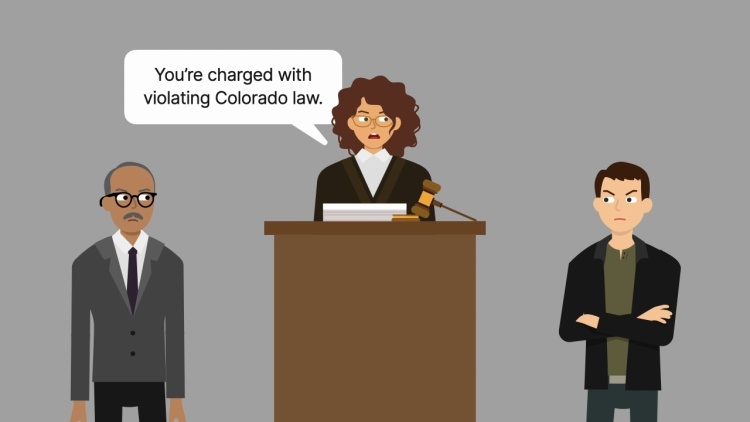Counterman v. Colorado
United States Supreme Court
143 S. Ct. 2106, 600 U.S. 66 (2023)
- Written by Tammy Boggs, JD
Facts
Billy Counterman (defendant) sent hundreds of Facebook messages to musician C.W., whom Counterman had never met. Some messages contemplated violent harm befalling C.W., and others implied that Counterman was stalking her. C.W. became anxious for her safety. She stopped walking alone and canceled social and professional engagements. When C.W. eventually contacted the police, Counterman was charged with violating a Colorado statute that prohibited repeatedly communicating with another person in a manner that would cause a reasonable person serious emotional distress and did cause the recipient serious emotional distress. Counterman moved to dismiss, arguing that his messages were not true threats and were therefore protected by the First Amendment’s Free Speech Clause and could not be the basis for criminal liability. To determine whether the messages were true threats, the trial court applied an objective standard, finding that because a reasonable person would find Counterman’s messages threatening, the messages constituted true threats not protected by the First Amendment. Counterman’s motion to dismiss was denied, and the jury convicted him. The state appeals court affirmed, and the Colorado Supreme Court denied review. The United States Supreme Court granted review to address a court split as to whether true-threat liability must include a subjective element.
Rule of Law
Issue
Holding and Reasoning (Kagan, J.)
Concurrence (Sotomayor, J.)
Dissent (Barrett, J.)
What to do next…
Here's why 907,000 law students have relied on our case briefs:
- Written by law professors and practitioners, not other law students. 47,100 briefs, keyed to 996 casebooks. Top-notch customer support.
- The right amount of information, includes the facts, issues, rule of law, holding and reasoning, and any concurrences and dissents.
- Access in your classes, works on your mobile and tablet. Massive library of related video lessons and high quality multiple-choice questions.
- Easy to use, uniform format for every case brief. Written in plain English, not in legalese. Our briefs summarize and simplify; they don’t just repeat the court’s language.







